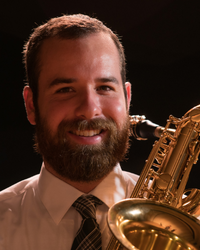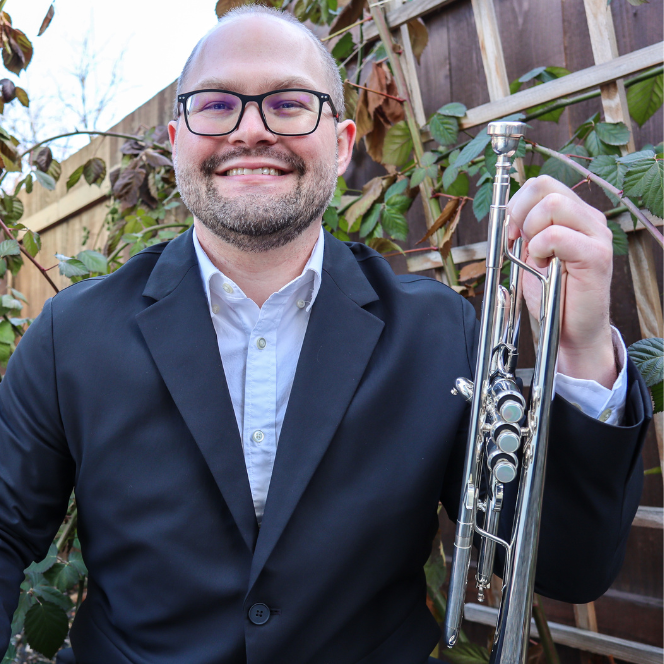About
Learn the foundational skills of creating, manipulating, processing, and recording music in the modern music industry.
The music production certificate is focused on using Digital Audio Workstation software and the related hardware/software used by music producers and engineers. Recipients of the certificate will be able to run their own recording sessions and projects and step into both live and studio sound production careers.
Program Information
Open to all Boise State students; this 7-credit certificate provides a focused set of experiences in music production, technology, and engineering topics. In addition to exposure to a wide range of career pathways, students will be able to record and produce music and audio for various applications in many fields.
This certificate will enhance any existing major by equipping students with the skills necessary to execute professional audio production and content creation tasks.
Learning Outcomes
- Implement compositional techniques used in electronic music
- Recognize the building blocks of music as it pertains to music production
- Demonstrate the ability to implement audio engineering tasks that include recording, editing, mixing, and mastering
- Analyze and apply gained music production knowledge by making connections to the student’s major area of study via a capstone project
- Demonstrate project-based competency with a variety of music production workflows
- Experience with project management for music production
- Recognize and experiment with production-adjacent technologies that synergize in various industries.
- Design, develop, and construct music production projects that involve music and media
Certificate Courses
Courses
MUS108: Electronic Music Composition
Offered each fall semester, students will be introduced to electronic music production practices through exposure to the building blocks of music, beat-making, and music composition/form using Digital Audio Workstation software. Students will leave with the ability to create electronic music using virtual instruments and MIDI sequencing. They will also gain an understanding of the underlying theories of music and how it can be used to enhance media.
MUS209: Music Technology
Offered every semester, students will develop essential experience with technology in the field of music and music education. Students will become familiar with music hardware and software commonly used in music education, composition, and production disciplines. This includes music notation software, educational music production software, digital audio workstations, signal flow, live sound, concert production, sound reinforcement, field recording, audio/video synchronization, website construction, and technology troubleshooting techniques for music.
MUS308: Music Engineering
Offered each spring semester, MUS308 develops audio recording and production techniques in a studio setting. Students will be able to operate in a recording studio environment, engineer multi-track recording sessions, overdubbing, utilize click tracks and visual mediums, edit recorded audio, work with automation and effects, mix recorded audio, and produce finalized audio in a variety of formats. Course concludes with a music production capstone project as part of the course.
MUS108 and MUS209 can be taken in any order, but both are required prerequisites for MUS308.
Career Pathways in Music Production
Music production is a diverse umbrella encompassing the creation, capture, manipulation and preservation of music expressly for commercial purposes. As a major facet of the music industry, production involves diverse skills and puts professionals from many different career fields into direct collaboration.
Music production skills include recording music from live concerts to studio sessions and overdubbing. Production also consists of all of the skills necessary to edit/mix/master audio in a variety of settings. This includes film, radio, tv, live and studio applications. In addition, industry music producers often compose simple songs/beats and help direct an artist. In the applied sense, a producer is a person with the skills and ears to help lead a recording session for an artist so that they capture exactly what is needed.
Music production skills can enhance nearly any career field as they empower you to become more digitally fluent and capable of content creation in various settings. Music production skills can easily complement the portfolio career necessary for the arts sector. They allow you to produce and create content without paying much money for someone else to do it. Music production is an excellent way to add a music focus to any career path or degree area.
Types of Jobs
Jobs in the music production industry include, but are not limited to:
- Recording Engineer
- Live Sound Engineer
- DJ and live electronic music
- Mastering Engineer
- Mixing Engineer
- Voice Over Work
- Foley and Sound Effects
- Music Composition
- Dialogue Replacement
- Temp Tracking
- Media Project Management
- Film Scoring
- Sync License Production
Music Production Faculty
-

Dr. Matthew Castner
Assistant Professor: Saxophone/Music Industry
-

Prof. Logan Frewen
Assistant Teaching Professor: Music Technology/Commercial Music
-

Dr. Derek Ganong
Associate Professor: Trumpet, Director of Jazz Studies
-

Dr. Kramer Milan
Assistant Professor: Percussion and Music Technology